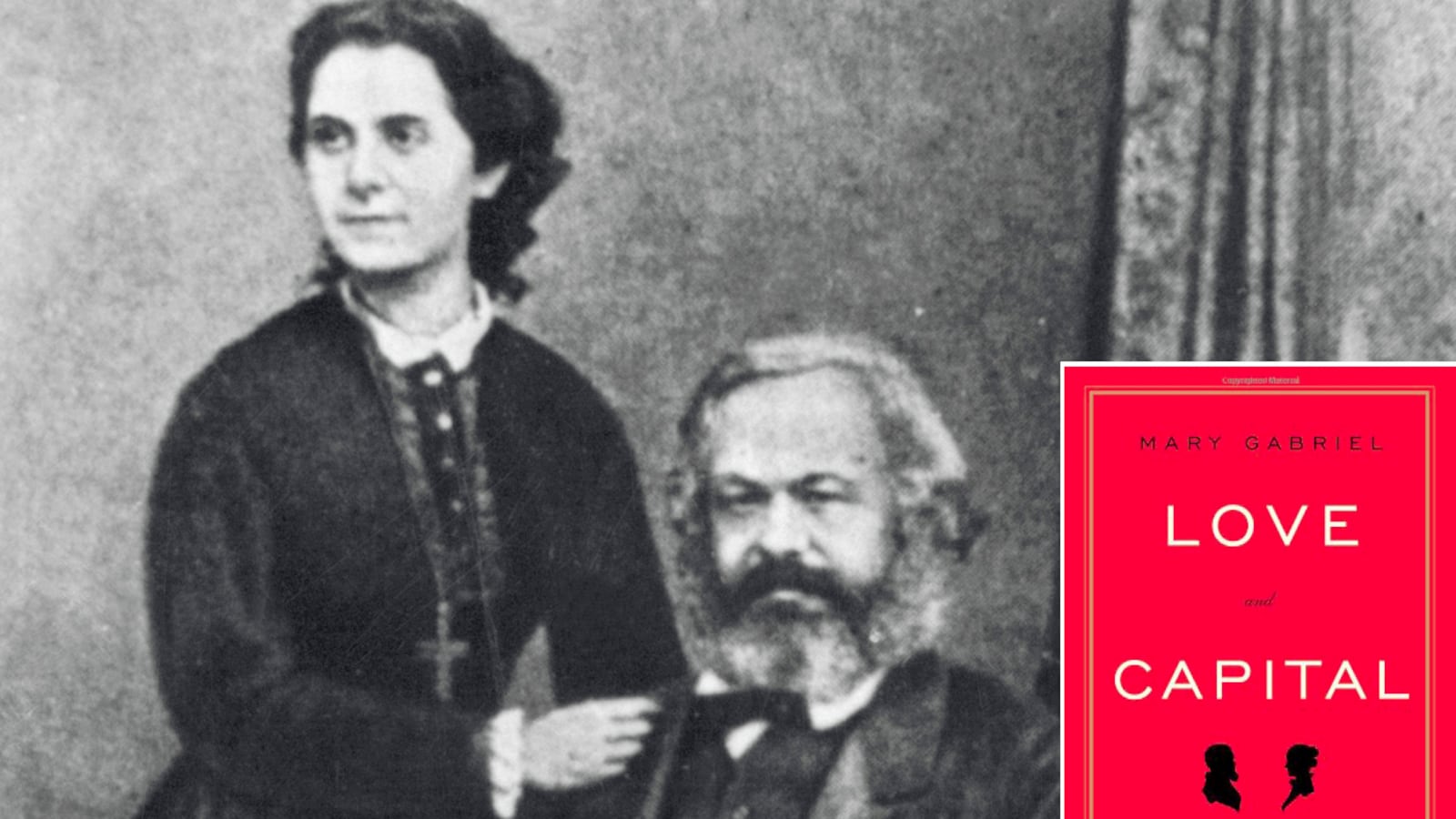Karl Marx famously said, “If anything is certain it is that I am not a Marxist.” Nowhere was that more evident than in the Marx family home in London. There, Marx presided over a court of five devoted women whose shared goal in life (nearly their sole goal in life) was to enable him to do what he set out to do—change the world. If Marx had been a king, he could not have had more loyal courtesans. If he had been a religious figure, he could not have had more fervent followers.
But he was a revolutionist, an often shabby, poverty-stricken genius with a taste for the bottle.
Indeed, far from being Marxist, the family’s home was, at first glance, a model of mid-Victorian domesticity. The undisputed head of the household was Marx, around whom the women in his life—his wife Jenny, his three daughters, Jennychen, Laura, and Eleanor, and the family’s lifelong domestic helper, Helene Demuth—orbited. With a trickle of earnings from Marx’s journalism and more substantial contributions from Marx’s closest colleague, Friedrich Engels, the women managed with surprising success to maintain a veneer of respectability. (In fact, Marx’s critics often pointed to his “bourgeois” lifestyle in an attempt to discredit him.) This facade was essential, partly to keep creditors at bay and partly to increase the Marx daughters’ marriage prospects. In reality, though, struggle was the operative word in the Marx household—not just in the Marxist sense of a “class struggle” but, for many years, in the very real sense of not knowing where the next meal might come from.
It could have easily been otherwise. Marx was an educated Prussian married to a baron’s daughter. He might have used his considerable intellectual abilities and her aristocratic status to gain a position that would have ensured his family’s security. Marx, however, never truly entertained that traditional, easy path as an option. He had a mission to build a more just society, which ultimately became a mission to save the masses—working man and middle class—from the excesses of capitalism. The sad irony was that as much as he loved his family, he did not seem to consider that they, too, needed saving. Like an artist single-mindedly dedicated to his vision, Marx expected his wife and children to fall into place behind him because they also recognized the significance of his work. He believed that they, too, must be ready to sacrifice for his goals. Lovingly and without hesitation, they did.

Jenny Marx, especially, may not have understood how much her marriage to Marx would cost her. She knew when she married him in 1843 that she was not only marrying a man, but also an ideal, and she willingly pledged herself to both. Jenny blithely exchanged the countless privileges she might have expected as a Prussian aristocrat for a life on the run as the wife of a revolutionary writer, expelled from country after country until she and her three young children landed unceremoniously in their final home: wet and cold London, circa 1849. If it hadn’t occurred already, bitter reality quickly impinged.
The Marxes were relatively friendless refugees in a city they did not know and whose language, initially, they did not speak. Within two years of their arrival in London, Jenny had two more children. Within three years, both of them were dead. The only Marx child from this initial period to survive was one Marx did not claim—a son he had by the family helper, Helene Demuth. Again sacrifice was demanded, this time not only of Jenny (who was not so naïve as to doubt that Marx was the child’s father) but also of Helene, who was an essential member of the household and shared the family’s many trials as if she were a member. Both women stood by Marx and, despite the countless difficulties and continual disappointments, always would.
As for Marx’s daughters, they adored their father. They were born into a revolutionary household, with all the complications that entailed. But far from being burdened by their outsiders' existence, they relished it. Their educations reflected the values of Victorian society—music, art, literature, and languages—but were augmented by a heavy dose of radical politics. As soon as they were able, they became their father’s assistants. Not until they were women, in fact, did they truly understand the high price of being born a Marx. One daughter lost all three of her young children while living on the Continent to further her father’s agenda. Another rashly substituted a cherished life as a journalist for a miserable marriage to one of her father’s young French followers. A third became ensnared by a man whom she believed to be worthy of her father but who, in the end, drove her to suicide.
Loyalty to himself and sacrifice to his cause were the unspoken demands Marx made of those who offered to help him create what he believed would be a better world. In his immediate household, he was not disappointed. Karl Marx may not have been a Marxist, but it can be safely said that the women who loved him most, were.






